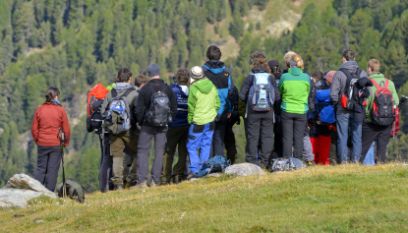Structure + Content
Mountain areas have special potential and present special challenges. They provide unique landscapes, decentralised value creation and diverse social and cultural patterns. At the same time, though, nature conservation and protection of the landscape often seem incompatible with economic interests. Climate change, growing integration into world markets and the emigration of the mountain population are giving rise to new challenges.
The regional management of mountain areas requires specialists who are familiar with these features and trends and can adopt an interdisciplinary and cross-sectoral approach to their work, focusing on practicality and goals. The MSc in Life Sciences with the ‘Regional Management in Mountain Areas’ (Alpine master’s) major equips you for precisely this task.
Learning Outcomes
-
The Alpine master’s programme will equip you with sound professional knowledge of regional management in mountain areas – you will become an expert in your field.
-
You decide whether to focus on agricultural or on forestry aspects – the Alpine master’s builds on expertise from both sectors.
-
You will develop the ability to delve quickly and independently into unfamiliar areas, then implement your new knowledge in practice.
-
You will master a broad spectrum of methodological and leadership skills and learn to manage complex projects competently.
-
You will become adept at making scientific contributions in multidisciplinary teams.

Programme structure
Important information
You will take interdisciplinary foundation modules such as Innovation and Project Management. These core-competence modules are offered to all students on all MSc in Life Sciences programmes. You will also take modules which teach key agricultural and forest skills. From a range of major-specific modules, you choose those modules that will best help you to hone your specialist knowledge and develop your interests in current and exciting subject areas.
At the heart of your studies is your master’s thesis. This is generally embedded within a BFH-HAFL project, but may also be conducted with an external institution or company – for example, your employer.
| Master’s thesis – the core of your studies | 30 credits | |
| Specialisation modules | min. 30 credits | |
| Cluster-specific modules (Environment Cluster) | min. 9 credits | |
| Core-competence modules (Data and Business Management) | min. 12 credits |



















